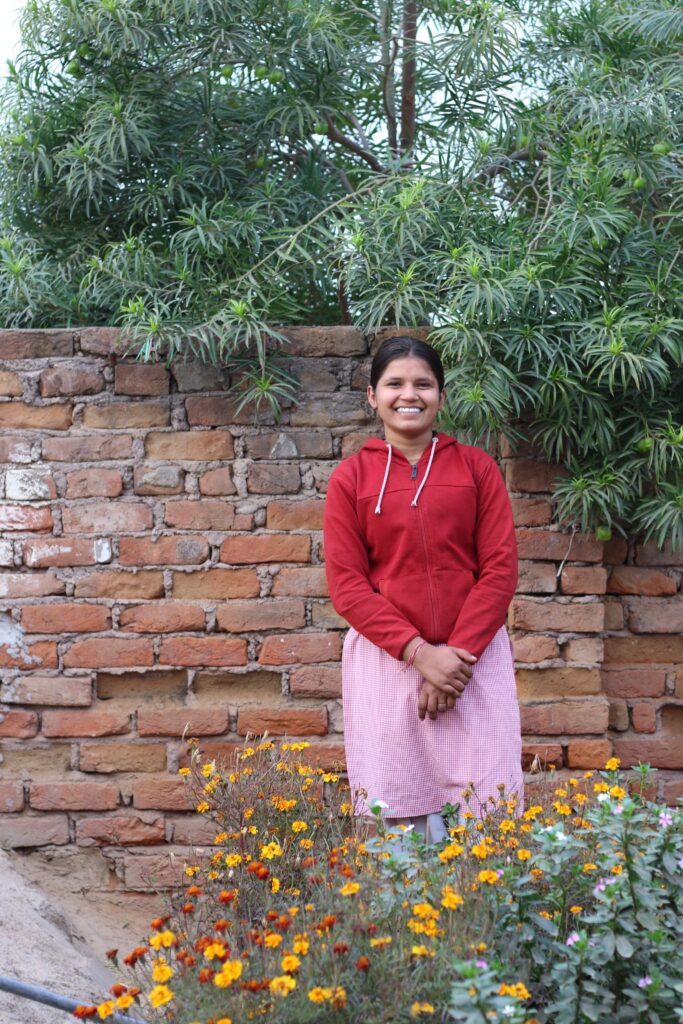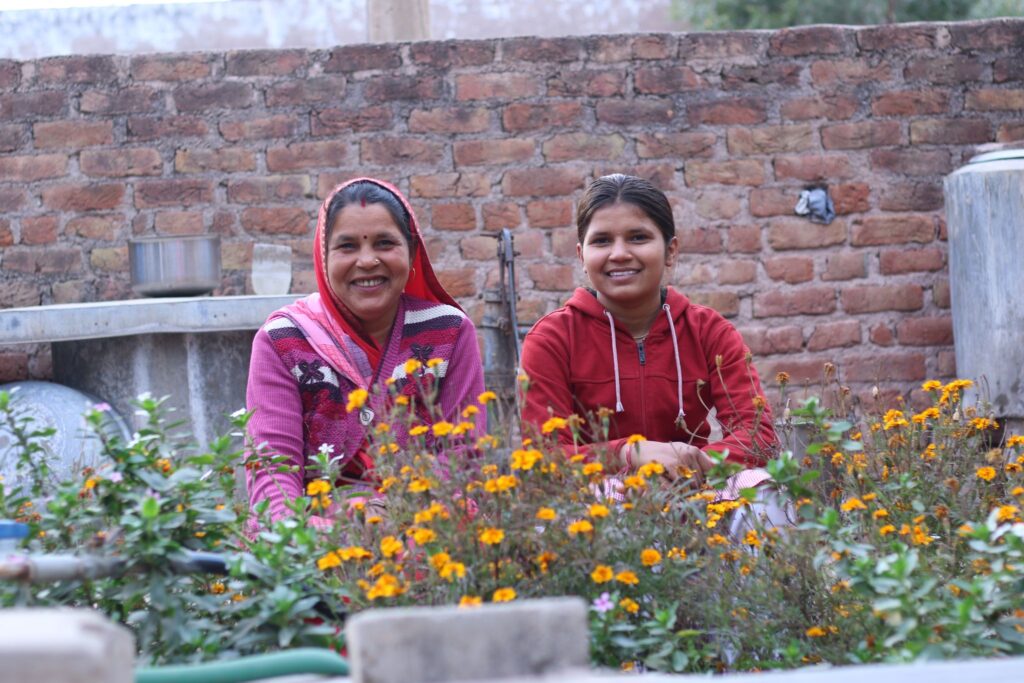Transformational Education

Sixteen year old Neha Saini is nurturing her dream to become an IPS officer. But not so long ago, when due to the pandemic lockdowns schools were shut, things didn’t look so optimistic. Neha is a resident of Shiv Colony, Ferozpur Jhirka in Nuh, Haryana. Sharing its border with IT hub Gurugram, Nuh happens to be the most backward district due to the poor literacy rate and the water crisis worsening the economic conditions.
To encourage the education of girls and to prevent them from losing learning opportunities after COVID-19, the Girls Education Program was started in 2021. Focussing on the girls in the age group of 6-16 years, of whom many are first generation learners and belong to the most vulnerable sections of the society, the program aimed to provide remedial classes to 1,500 school-going girls to ensure that they do not drop out of formal schools due to the hardships brought about by the pandemic.
A student of Girls Senior Secondary School Ferozpur Jhirka, Neha was not a regular student and would mostly keep to herself. With the pandemic-induced lockdowns, it seemed she would be pushed away from finishing her school education. Nowhere has this impact been more evident than in the lives of adolescent girls and young women of the world who have borne the brunt of this pandemic rather disproportionately. In India, merely 33% of girls in the country attended online classes during the COVID-19 lockdown, while as many as 68% of girls struggled to access health services and 80% were unable to access sanitary items during the nationwide lockdown.
Neha’s father is the sole earning member for a family of five, earning Rs 8,000 as a driver. Her parents were considering marrying her off soon. But Neha decided to visit the tuition classes being offered under the Girls Education Program in 2021. She had heard about it when one of the teachers from the program had visited her home. For the first time Neha’s interest for education was piqued. In the tuition classes, she observed interactive sessions which were engaging her through activities. Soon, she started enjoying them. She started taking part in group activities. According to Neha, “I started going to tuition classes regularly as I was eager to learn and be there. I understood more through class activities and my confidence increased. I even urged my friends to join the classes.” Neha started scoring better marks at school. “I started teaching younger children in my neighbourhood, clearing their doubts. I figured education is something which grows if it is shared. With teaching, my concepts too started getting clearer,” states Neha.
Besides education, travelling is something which opened her world view. Neha, through the program, travelled outside her home for the first time to Alwar and visited museums and national parks. “It was so exciting to see another world outside of where I live. It felt like my life was expanding too.” To inculcate all round development, students enrolled in the program were encouraged to learn about the environment and sustainable practices to protect it. Neha explains, ”We were given some shade-loving and flowering plants along with the information on the importance of planting trees to decrease global warming. I planted them in my home and I take care of them regularly. Gardening has brought a sense of control in my life, and I love marigolds!”

Many first generation learners do not find a conducive environment to study and grow. The nurturing environment of the Girls Education Program centres were safe havens for students, a place where they could understand themselves, express and grow. The centres did not only propel the students, but even broadened their parents’ and community’s understanding at large. Krishna, Neha’s mother, agrees with this sentiment, “We were thinking of marrying Neha off since we did not see any benefit of her pursuing higher education. But since she joined the program’s remedial classes for three years, her personality has changed. She is interested in things, confident and is doing better at school. I went to the parent-teacher meetings held at the centres regularly where I was informed about her progress. I learnt about the scope of education and what Neha can do with her interests. I am uneducated, but now I want my daughter to study and do whatever she wants.” Neha scored 85% marks in her 10th standard in Haryana State Board Examination, 2024.

Neha, along with other students were counselled about the career options, where they could understand the different possibilities and what they needed to achieve their goals. It is during one of these sessions Neha realised she wants to be an Indian Police Officer (IPS) and has started working towards it. “I want to bring a positive change in the community, especially like the ones where I come from. I want to do good work and inspire other girls like me”, beams Neha confidently.
